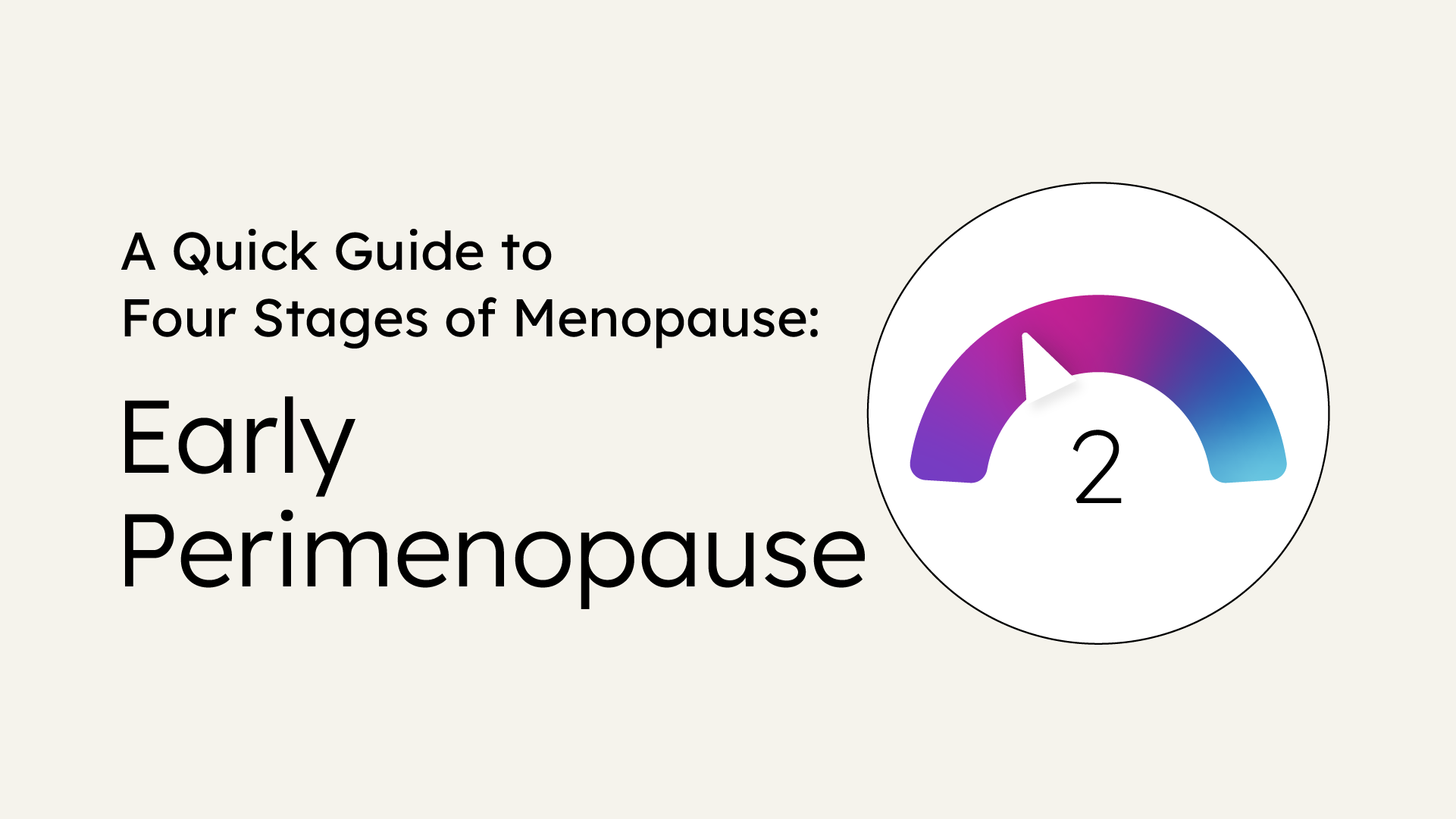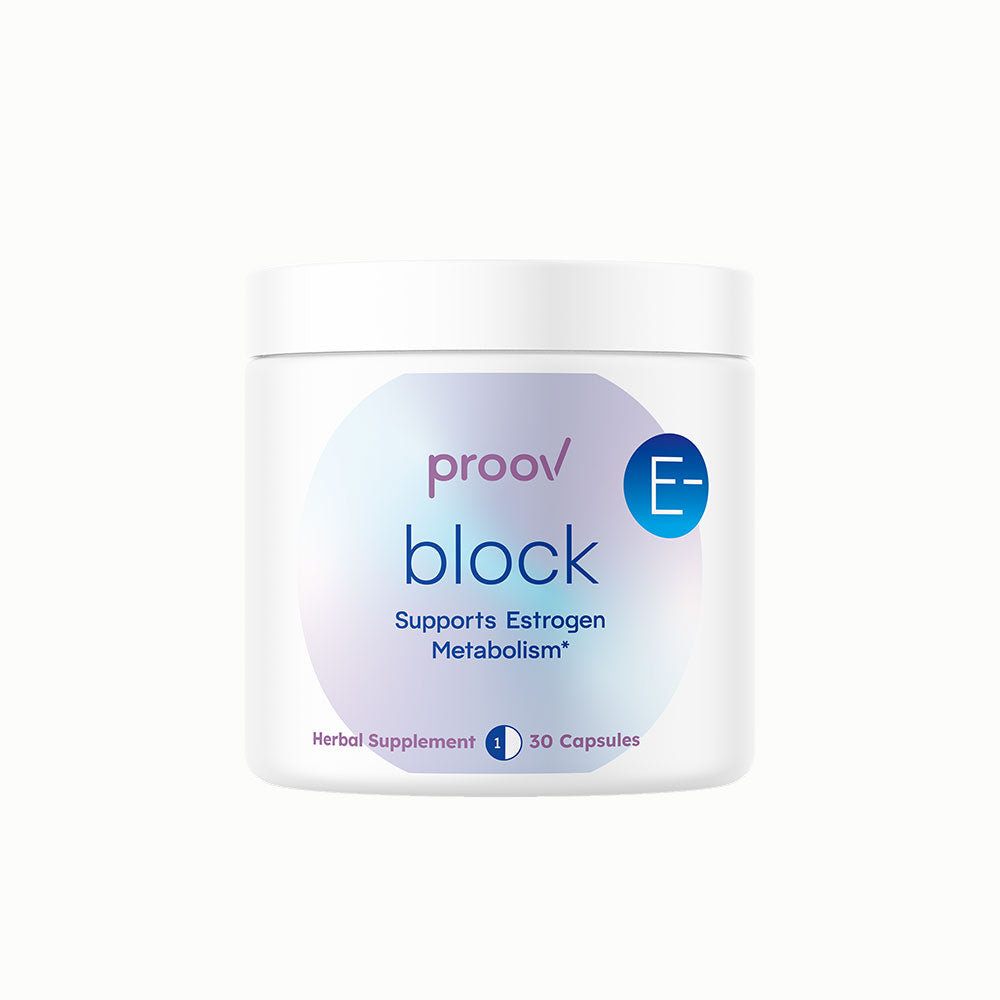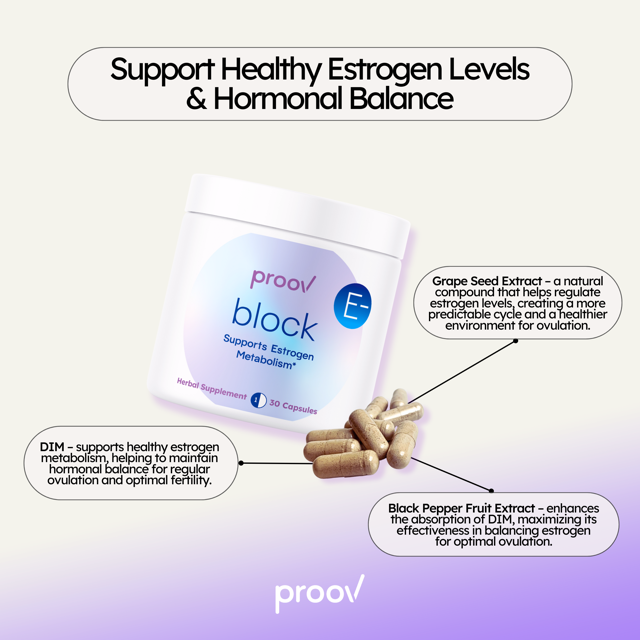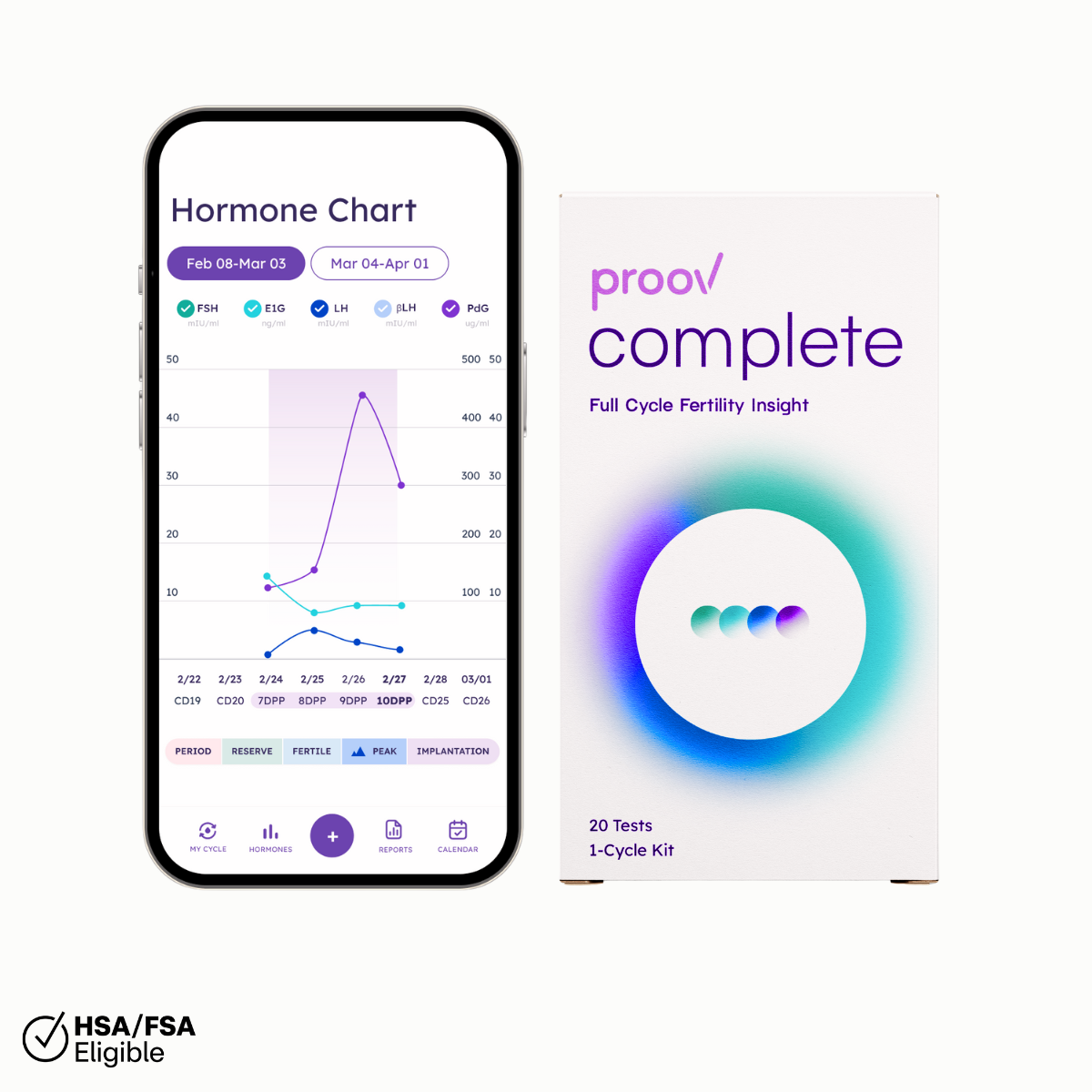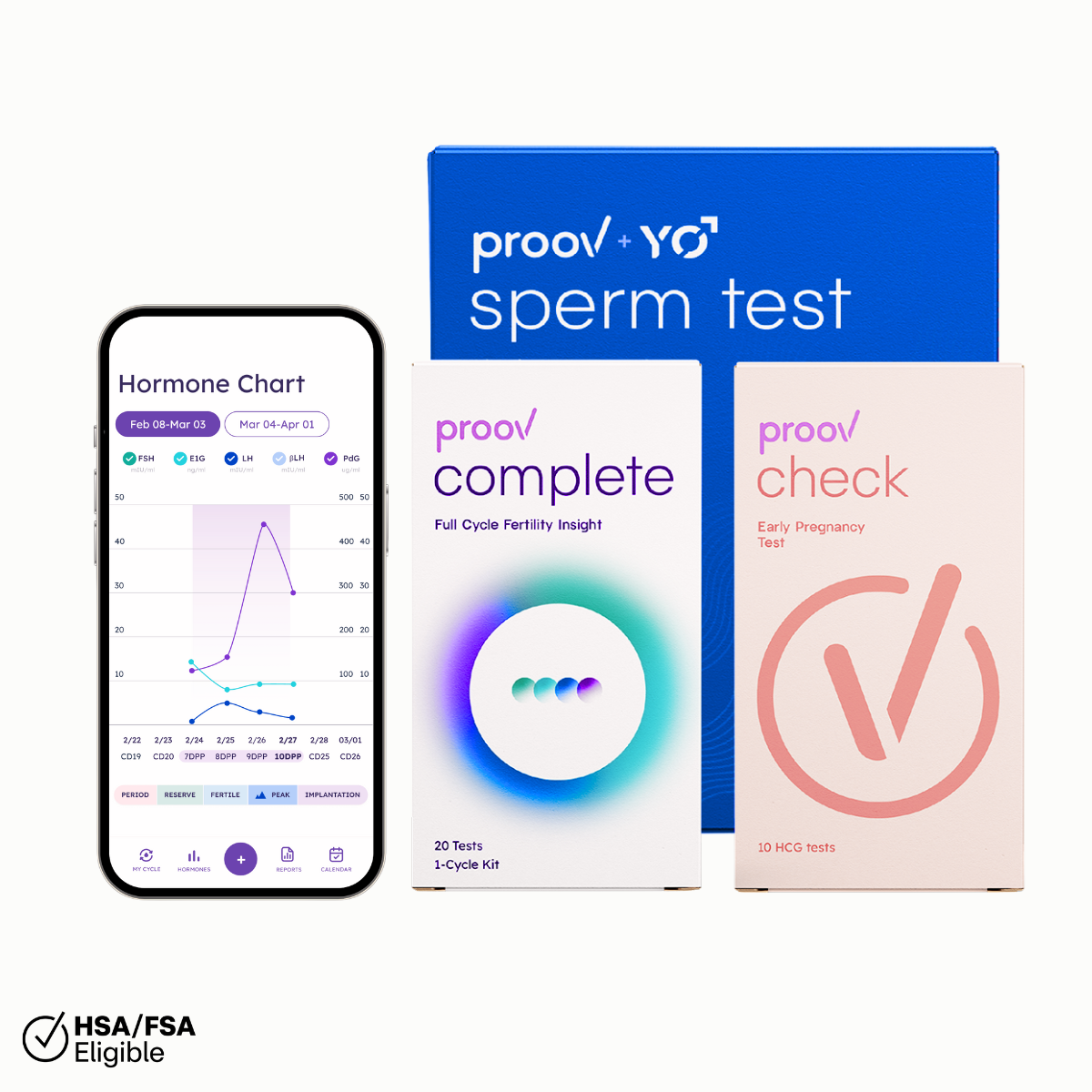Welcome to the start of your perimenopause journey: early perimenopause
This stage marks the initial changes in your hormonal landscape, and many women begin to experience symptoms without realizing that perimenopause is the cause. Despite that, the Proov team is here to help you understand what's happening and how to manage these early changes with confidence.
What is early perimenopause?
Early perimenopause is the first step in the menopause transition, and it's the beginning of a series of hormonal shifts that occur as you start the path towards the end of your menstrual periods. Menopause begins when you've gone 12 consecutive months without a menstrual period. Perimenopause is a 5-10 year time before menopause, and often starts in your late 30s or early 40s.
What hormone changes are happening and why?
In early perimenopause, your ovaries start to produce less progesterone, and your estrogen levels can either go up for drop, causing a range of symptoms for many women (see below). These changes are due to the gradual decline in the number of eggs in your ovaries, leading to less consistent ovulation. FSH (follicular stimulating hormone) levels start to rise as your body "tries harder" to push the ovaries to ovulate.
What symptoms are typical for this stage?
During early perimenopause, you might notice:
- Mood swings and irritability: hormonal fluctuations can affect your mood
- Breast tenderness: changes in estrogen levels can cause sensitivity
- Sleep disturbances: difficulty falling or staying asleep
How does this stage affect my cycle?
In early perimenopause, menstrual cycles become less predictable. You might experience cycles that are shorter or longer than usual, with periods that vary in flow and duration. A common pattern is that periods get heavier and closer together, then less frequent. This irregularity is a hallmark of early perimenopause and can be one of the first signs that your body is entering this stage.
What stage is ahead? What can I expect?
As you move through early perimenopause, your hormone levels will continue to fluctuate, leading to more pronounced symptoms that can last up to 10 years. The next stage is late perimenopause, where the symptoms of hormonal imbalance become more intense and menstrual cycles may become even more irregular, sometimes skipping months entirely.
What signs should I expect to see when transitioning into the next stage?
As you transition from early to late perimenopause, you might notice:
- More frequent and intense hot flashes and night sweats
- Increased menstrual irregularity, with missed periods
- Worsening sleep disturbances and fatigue
- More pronounced mood swings and irritability
- Additional symptoms like vaginal dryness and decreased libido
Early perimenopause is a significant step in your hormonal journey. While the changes can be challenging, understanding what's happening in your body is empowering (hence the name, get it?!).
Testing regularly and recognizing symptoms early allows you to seek the right information and support to manage your transitions from stage to stage smoothly — whether that’s with lifestyle changes, supplements, hormone replacement therapy (HRT), or some combination over time. Accurate testing and reliable information are your allies in navigating this stage with confidence and ease. Remember, you’re not alone! Proov is here to support you every step of the way.

